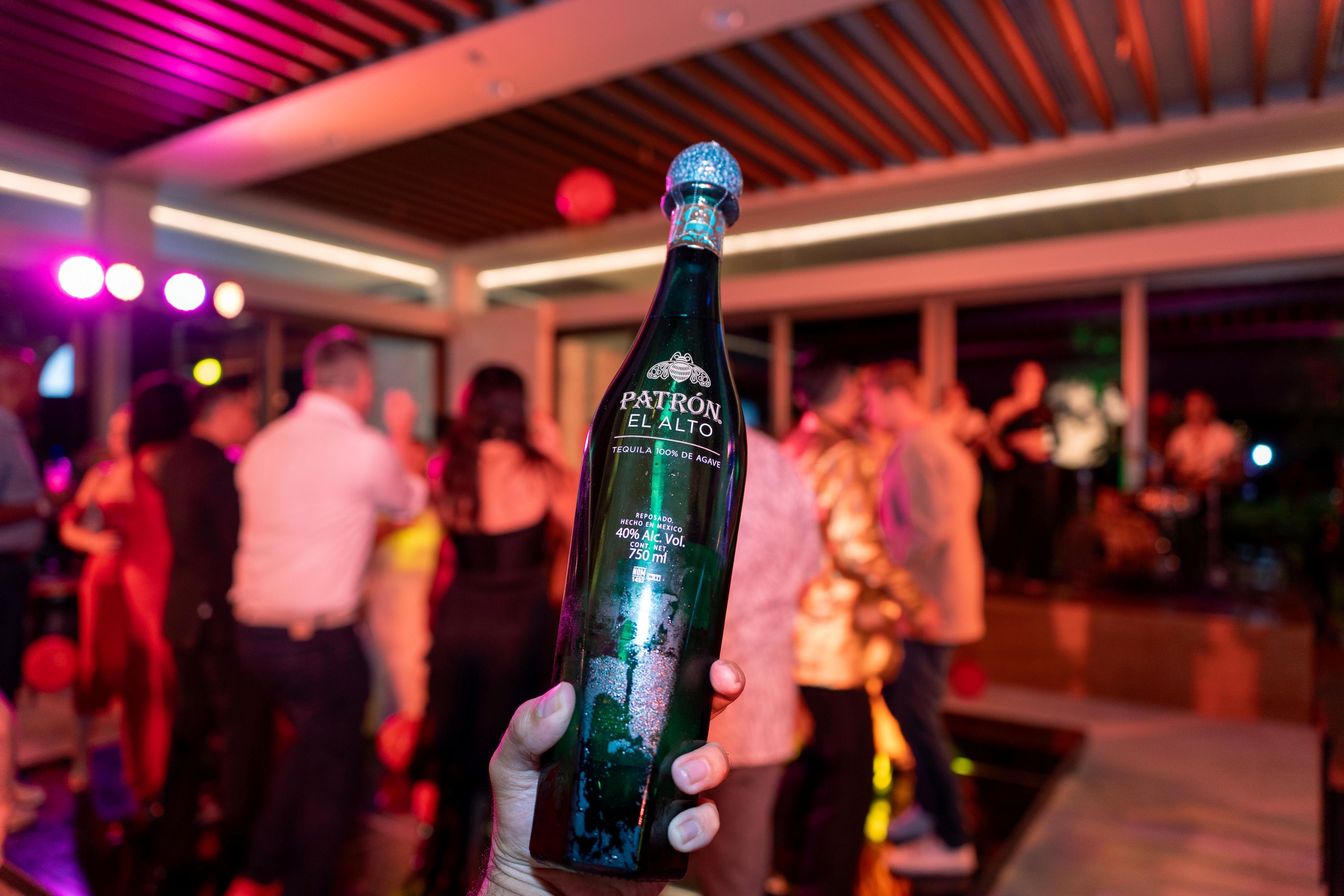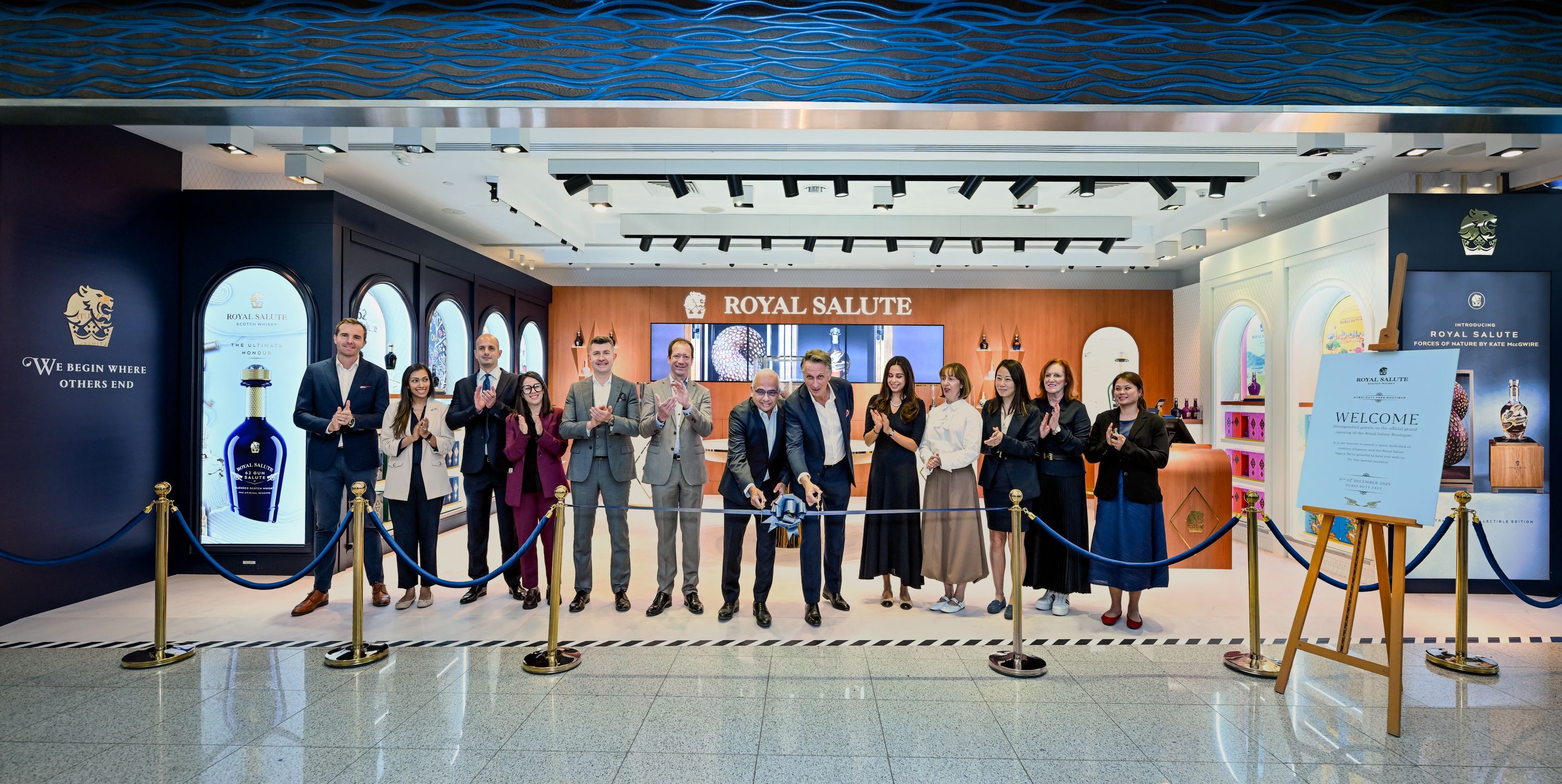July 18, 2024
With a growing appetite for travel, Gen Z's distinct preferences continue to shape industry standards
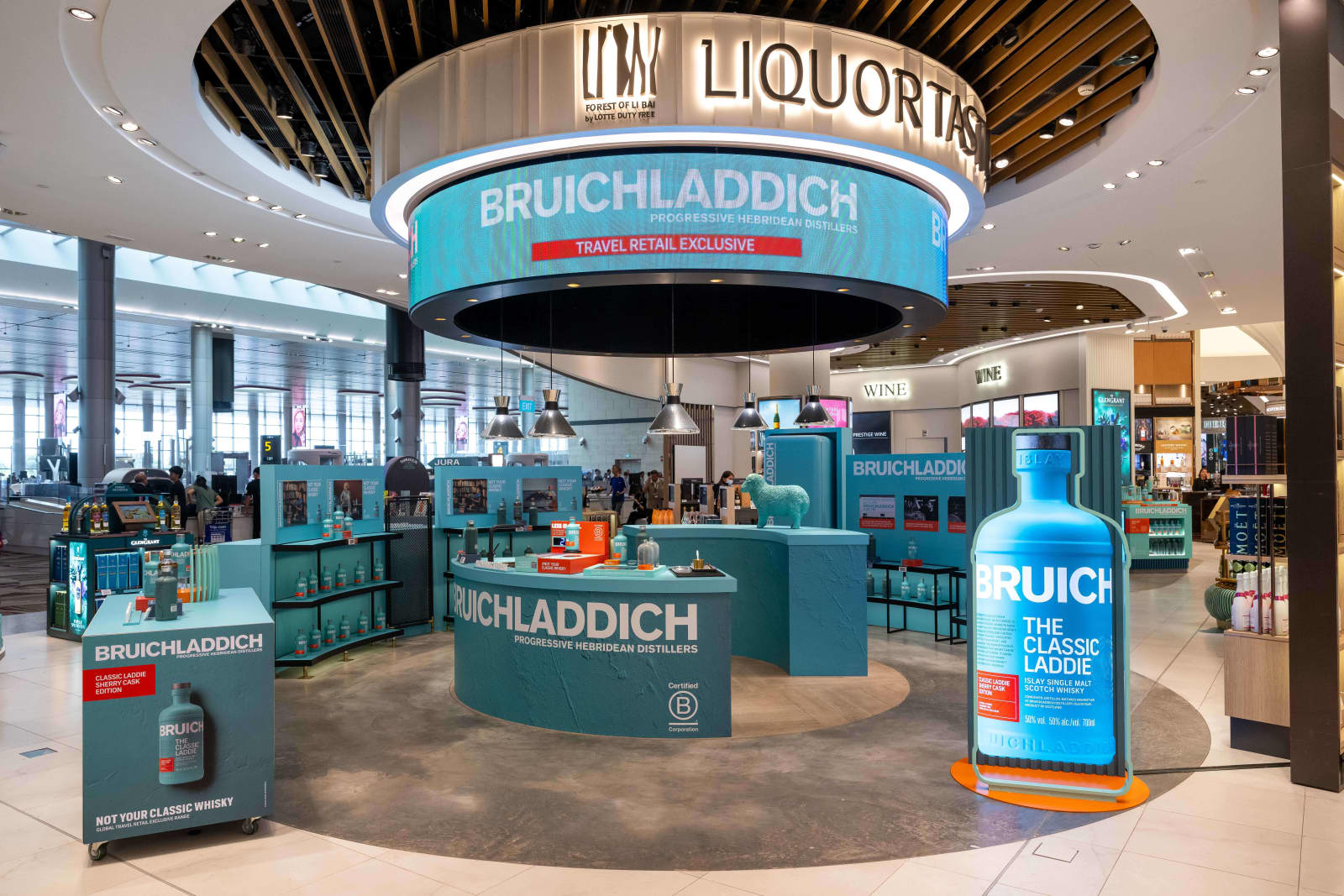
Prestige whisky brand Bruichladdich’s new bottle contains an average of 60% recycled glass and is 32% lighter than its predecessor
With its adult population now ranging from 18 to 28 years old, Generation Z represents today’s traveling zeitgeist. This cohort is reshaping the duty free spirits market with a distinct preference for quality over quantity, aligning with its broader values of authenticity, sustainability, and unique experiences.
Gen Z travelers are frequent and adventurous, typically taking an average of three leisure trips annually. They prioritize experiences that are off the beaten path and they are heavily influenced by social media. This demographic values ethical practices and environmental sustainability, often researching companies’ approaches to these issues before making purchasing decisions.
In travel retail, Gen Z shows a growing appetite for premium and authentic products. They are more likely to spend on high-quality, ethically produced spirits and seek out brands that tell compelling stories about their heritage and production processes. This is driving retailers and brands alike to adapt their strategies, ensuring their offerings meet the high standards of Gen Z consumers.
Drinking better
The trend of “drinking less but drinking better” among Gen Z is reshaping the duty free spirits market. Brands are adapting their strategies to cater to this generation’s preference for quality over quantity, ensuring that their product offerings meet the high standards of these discerning consumers.
Global Drinks Ltd (GDL) is addressing this trend through a strategic approach to product selection, brand partnerships, and sales strategies. “GDL has carefully curated our own MISAKA whisky portfolio to include six super premium spirits that come with age statements and, importantly, a product story on our packaging that details why MISAKA whisky is a premium spirit that distinguishes itself from other whiskies,” says Marketing Director Harry Kartasis. “Whether it’s our fresh water-source stream that lies 250 meters under the MISAKA mountain range in Japan or the rare Mizunara casks we use to age five of our seven SKUs, we cater to Gen Z’s preference for quality over quantity.”
Rémy Cointreau GTR is also tapping into this trend by leveraging its extensive portfolio, rich heritage and expertise. “We welcome the opportunity this development gives us to shine a spotlight on our premium offerings to travelers who are seeking out exceptional spirits across various product categories,” states Alice Hoffman, Worldwide GTR Marketing Director. Rémy Cointreau’s portfolio includes prestigious brands like Louis XIII and Rémy Martin Cognac, Bruichladdich Islay single malt whisky, Cointreau liqueur and The Botanist Islay Dry Gin, perfectly positioned to meet Gen Z’s demand for exceptional drinking experiences.
To address the trend of drinking less and the growing interest in mindful consumption, Rémy Cointreau is also showcasing the versatility of our spirits through low- and no-alcohol cocktail recipes. “These are often highlighted via our travel retail activations and our digital channels, educating consumers on how to savor the flavors of our brands while moderating their alcohol intake,” Hoffman states.
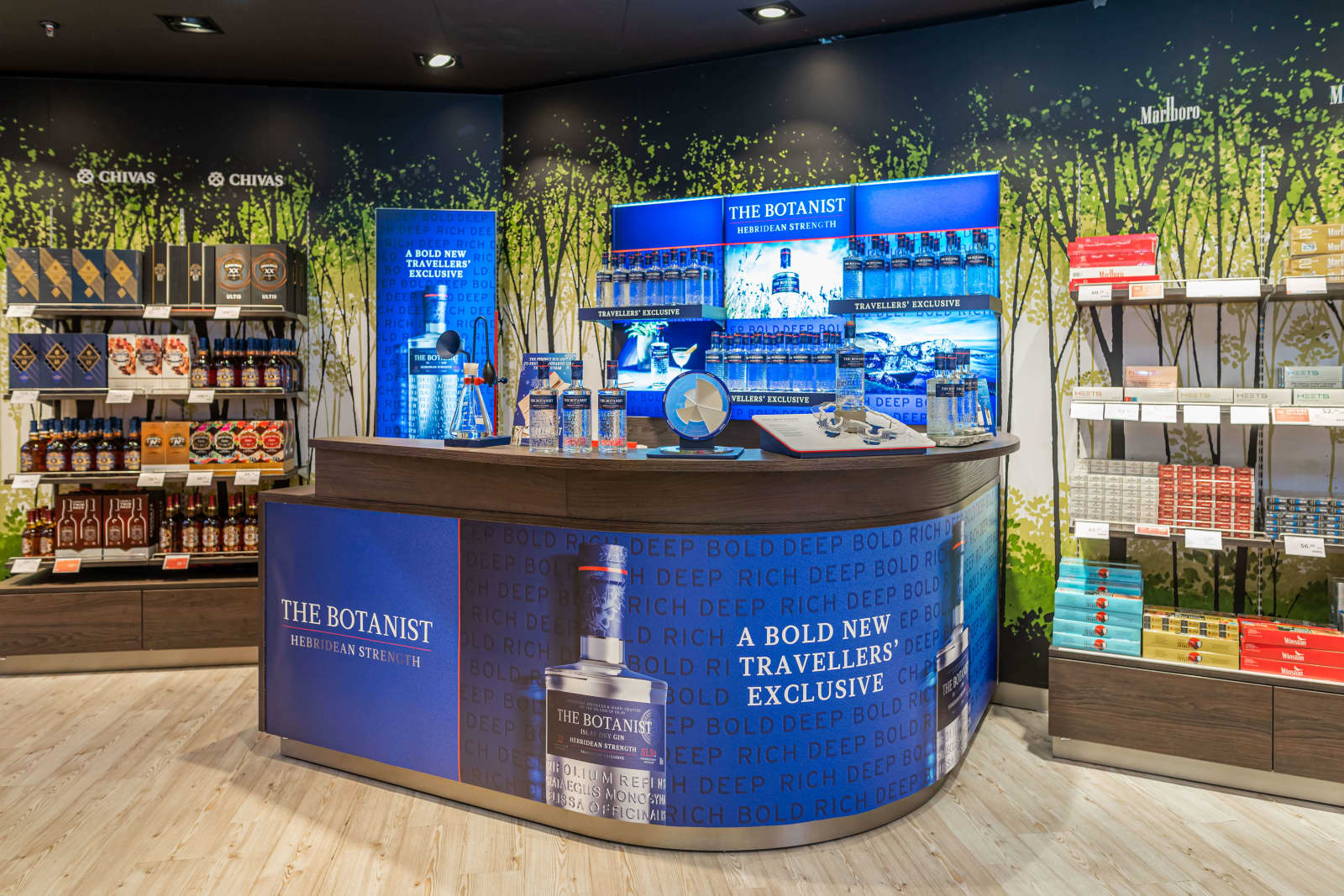
The Botanist not only serves as an authentic craft brand with a unique story, it also works tirelessly to reduce its impact and care for its Islay home
Emphasizing sustainability
Sustainability has become a significant consideration for all demographics, and none more so than Gen Z, who prioritize environmental and social responsibility in their purchasing decisions. Spirits brands are increasingly focusing on sustainable practices.
Global Drinks Ltd represents brands like Stoli Group, Quintessential Brands, and Proximo Spirits, all of which have made sustainability an essential consideration. “Many of the brands we represent have implemented sustainability measures across their operations, from carbon-neutral production processes to eco-friendly packaging and responsible sourcing practices,” says Kartasis. “We closely collaborate with our brand partners to understand their specific sustainability goals and ensure that our distribution efforts align with and amplify their commitments.”
Additionally, GDL has launched its own sustainability initiative for MISAKA Whisky. “For every 1,000 bottles of MISAKA sold, we plant a Sakura tree in the MISAKA mountains, an initiative endorsed by the local government as an important part of their own sustainability goals,” Kartasis states.
While Rémy Cointreau GTR recognizes sustainability’s importance to Gen Z, this is a happy coincidence, as it is in strong alignment with its own company values. “We know that sustainability is an important purchase influencer for Gen Z, who care about the environment and social responsibility, favoring brands with proven sustainable practices and ethical sourcing. In this respect we are very fortunate, as sustainability is absolutely a core aspect of our company’s mission too – as is DEI,” states Hoffman. “Fida Bou Chabke, Rémy Cointreau GTR CEO, also leads on our Diversity, Equity & Inclusion activities, in collaboration with the Committee that represents all our countries worldwide.”
Rémy Cointreau prioritizes efficient energy usage, the use of eco-friendly materials and lighting in addition to waste reduction and responsible resource management, to minimize environmental impact. “For us, sustainability is not just an idea, but a key guiding principle across all our activation spaces,” Hoffman adds.
Several key initiatives highlight Rémy Cointreau’s commitment to sustainability, as Hoffman further elaborates: “Champagne Telmont has partnered with glassmaker Verallia to create the lightest Champagne bottle in the world to date, reducing its weight to just 800g and eliminating gift boxes and other packaging, further reducing its carbon footprint by an impressive 8%.”
Additionally, the new LOUIS XIII Cognac coffret is crafted from 100% cellulosic materials, reducing CO2 emissions by 57% and facilitating more environmentally conscious shopping, shipping, and transport practices. “Within the whisky category, Bruichladdich’s new bottle for our signature Bruichladdich Classic Laddie contains an average of 60% recycled glass and is 32% lighter than its predecessor, significantly reducing our environmental impact,” she adds.
The Botanist Islay Dry Gin is also strongly committed to sustainability, aiming to reduce its impact in terms of energy, agriculture, biodiversity, packaging and waste. “As custodians of Islay, The Botanist is working tirelessly to reduce the impact of its operations and become more environmentally conscientious in its actions,” Hoffman emphasizes.
Cultural exchanges
Global travel and cultural exchanges have significantly shaped Gen Z’s preferences, leading to a more adventurous and discerning approach to beverage choices. This generation’s exposure to diverse cultures and flavors has been amplified by social media, where influencers and content creators share their travel experiences, sparking curiosity about regional spirits and cocktails.
Hoffman acknowledges that Gen Z consumers typically have more adventurous palates, willing to experiment with new and unexpected flavors and moving beyond traditional spirit categories. “This openness stems from their exposure to global cultures and their desire for unique experiences,” she states. Gen Z values transparency and authenticity, seeking brands with compelling stories, traditional production methods and high-quality ingredients. While generally cost-conscious, they are also willing to spend more on premium, ethically produced spirits.
To cater to these preferences, Rémy Cointreau GTR curates a travel retail assortment that reflects these values, showcasing heritage brands and distinct cultural origins along with company values, transparency, expertise, terroirs, and sustainability. The assortment includes Rémy Martin, known for the heritage and tradition of Cognac making; Cointreau, essential for classic cocktails; Mount Gay, spotlighting the rich history of rum; and Metaxa, a Greek liqueur combining brandy, muscat wine, and Mediterranean botanicals. Bruichladdich and The Botanist offer travelers a taste of exceptional craftsmanship from their Islay distillery. “Importantly, we regularly innovate and update our heritage portfolio with limited-edition expressions and travel retail exclusives, tapping into Gen Z consumers’ desire for something that is rare and collectible,” says Hoffamn.
Kartasis notes that social media has played a crucial role in this shift. “Influencers and content creators sharing their travel experiences have sparked curiosity about regional spirits and cocktails. This digital storytelling inspires Gen Z to seek out those flavors when traveling or through imported products back home,” he says.
The MISAKA brand, available only through global travel retail, leverages brand ambassadors to deliver its story, engaging with passengers at airports and border crossings. “Our brand story is delivered through people engagement by brand ambassadors who are highly skilled and educated to get our message across to passengers who are either departing or arriving through an airport or border crossing,” Kartasis adds.
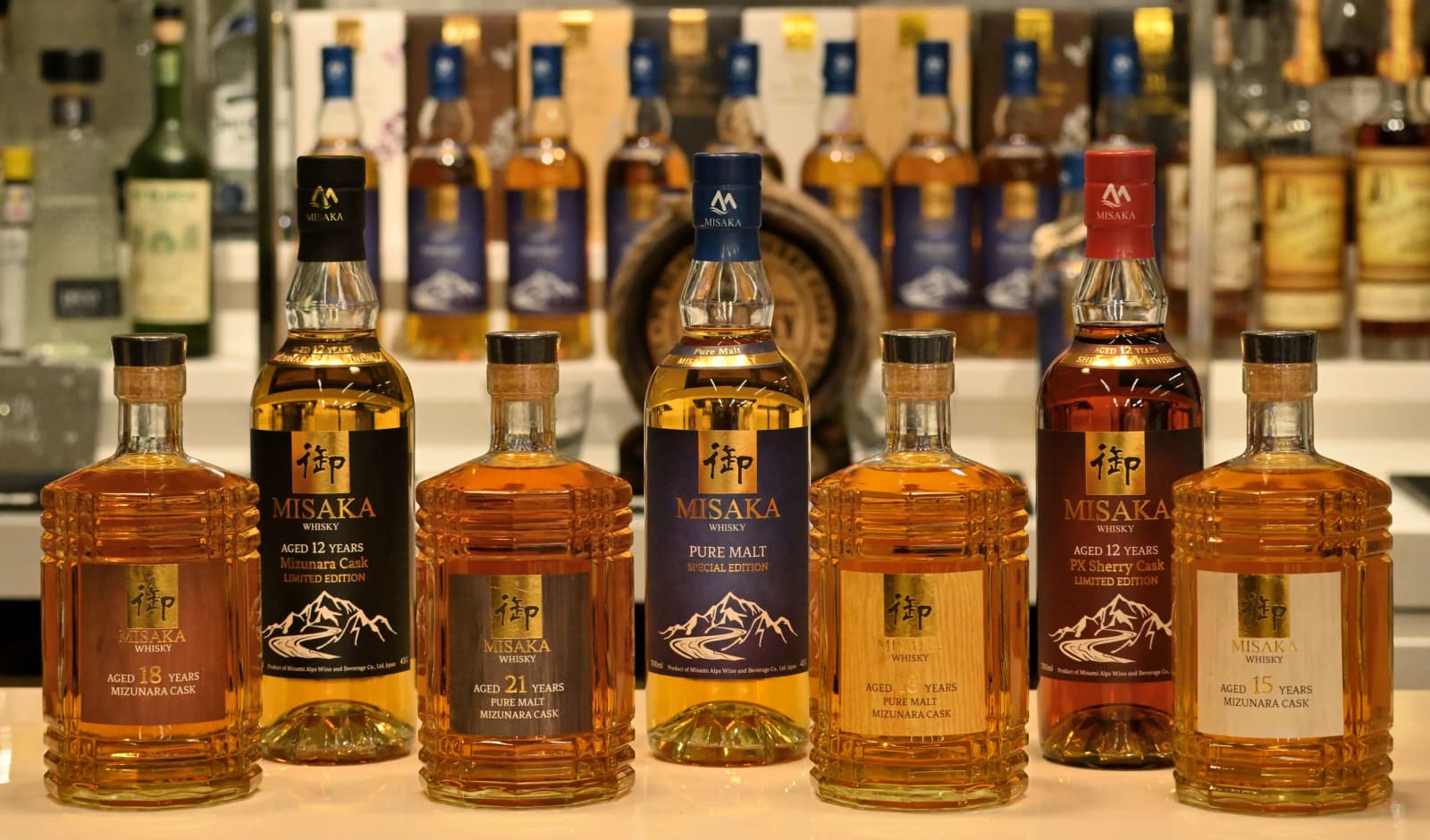
Managing Director Harry Kartasis says Global Drinks Ltd is focusing on strategic listings and cross-promotion for MISAKA
Digital and social
As Gen Z consumers increasingly prioritize digital and social media engagement, both distributors and producers of spirits are developing innovative strategies to connect with this demographic.
In the travel retail space, Rémy Cointreau GTR has created interactive displays and experiences that transport travelers to the origins of their brands, using diverse sensory elements to evoke a sense of place, according to Hoffman. Digital screens and interactive elements share the stories behind its brands, production processes and the people who craft them. Gamification, VR and AR elements are incorporated on-shelf and within airport activations to enhance the immersive experience and communicate their values and expertise.
“Digital communication and engagement is key for this demographic,” says Hoffman. “Accordingly, our Maisons have amplified our digital presence across our interactive online platforms, providing information about our spirits portfolio, guidance on responsible consumption, and cocktail inspiration,” In-store QR activations play a crucial role in bridging the physical and digital worlds, offering travelers instant and easy access to a wealth of content directly from their smartphones.
Nuances of engagement
Kartasis identifies lower footfall and conversion rates among Gen Z consumers in duty free shops as a significant challenge. “Only 56% of Gen Z visitors enter these shops, and their conversion rates are significantly lower than Millennials,” he states. “This lack of engagement poses a challenge for travel retailers.” Traditional travel retail, which focuses on product sales, may not align with Gen Z’s preference for unique experiences over material goods.
Hoffman highlights the difficulty of capturing attention in a crowded marketplace, and ensuring that educational content is enjoyable. “We need to communicate our product superiority, and ensure that Gen Z consumers understand our positioning and what sets our offer apart, as they are ready to spend more on high-quality, ethical products,” she notes. Authenticity is crucial, as is remaining true to the brand’s DNA in a world of short-lived trends.
Despite these challenges, both companies see opportunities and potential in focusing on this cohort. Hoffman notes the importance of leveraging Gen Z’s open-mindedness. “On the plus side, there are so many opportunities to capitalize on Gen Z consumers’ curiosity and desire for discovery. The possibilities of experiential engagement activities, and the advancement of digital integration, are hugely exciting. I am also confident that there’s much more to be done to harness sustainability as a differentiator,” she says.



